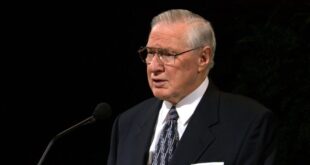In 1970, Neal A. Maxwell delivered a profound address about the Church Educational System that remains remarkably relevant today. As I revisited his words, I was struck by how prescient his vision was and how applicable his counsel remains in our rapidly changing world. You can view the speech in its entirety, with transcript on screen, here:
A Global Perspective on Education
Maxwell began by highlighting the impressive scope of LDS education even then: 200,000 LDS students worldwide, with only 16% attending Church institutions. The remaining 168,000 students needed spiritual nourishment through institute programs while attending secular universities. This pattern continues today, with the vast majority of Latter-day Saint students attending non-Church schools.
What’s particularly striking was Maxwell’s emphasis on the internationalization of the Church – a vision that has only accelerated in the decades since. He noted that there were more members in Brazil than in all Scandinavian countries combined, more in Uruguay than New York, and more in Pacific islands than in some western states where the Church has deep historical roots.
Today, the Church has grown exponentially in these international areas, making Maxwell’s call for “transculturalization” of educational materials (beyond mere translation) even more urgent. The Church now creates curriculum that speaks to members “after the manner of their language” across diverse cultures worldwide.
The Power of Seminary and Institute
Maxwell shared a statistic that remains compelling: where young people persist through institute graduation, their rate of temple marriage was 95%. This demonstrates the profound spiritual impact of religious education alongside secular learning.
I’ve witnessed this personally with my sons Derek and David, who both made varsity track this year while maintaining their seminary attendance. Dawson is balancing soccer and wrestling commitments too, yet they all prioritize gospel learning. I constantly remind them that this spiritual foundation is preparing them for their most important life decisions – including starting families while they’re young. When they talk about their desires for future families, I can see how their religious education is shaping their values in a world that often dismisses such traditional aspirations.
Balance in Career Counseling
Maxwell wisely encouraged a balanced approach to career counseling, noting that “the youth who becomes a craftsman should feel just as ‘approved’ as his friend who is a microbiologist.” He emphasized that career selection is “usually a matter of preference and not principle.”
This advice resonates today when many young people feel pressured toward certain prestigious career paths. Maxwell’s counsel to consider technical education and trades was ahead of its time and speaks to today’s renewed appreciation for skilled trades and technical careers.
The Home as the Primary Teaching Institution
Perhaps most relevant today is Maxwell’s declaration that “the home will always be our most vital teaching institution.” He stated, “If we poison the headwaters of humanity – the home – it is exceedingly difficult to depollute downstream.”
In our era of fragmented families and competing influences, this truth stands more firmly than ever. When homes fail to provide spiritual and moral guidance, no educational institution – not even Church schools – can fully compensate.
Education as a Divine Commitment
Maxwell concluded by tracing the Lord’s commitment to education throughout dispensational history – from Abraham studying astronomy to Jesus teaching in the temple as a youth to Joseph Smith establishing the School of the Prophets. This divine pattern affirms that pursuing knowledge is indeed being “about our Father’s business.”
His beautiful metaphor still inspires: when we reach “the small periphery of the spider web of our own reason and logic,” we find “the ropes of revelation on which we can climb upward, forever!”
Why This Matters Today
In a world where education is increasingly politicized and secularized, Maxwell’s vision of education that embraces both secular knowledge and spiritual growth provides a crucial roadmap. His international perspective anticipated our global church. His emphasis on the home as the foundation for all learning speaks to our family-centered gospel approach. And his vision of lifelong learning guided by revelation remains our ideal.
As I share these principles with my sons, I’m grateful for leaders like Maxwell who articulated an educational philosophy that prepares young people not just for careers, but for eternal families and service in God’s kingdom. In an age where many young people postpone marriage and family for extended education and career advancement, his integrated vision of education serving both temporal and spiritual purposes has never been more needed.




